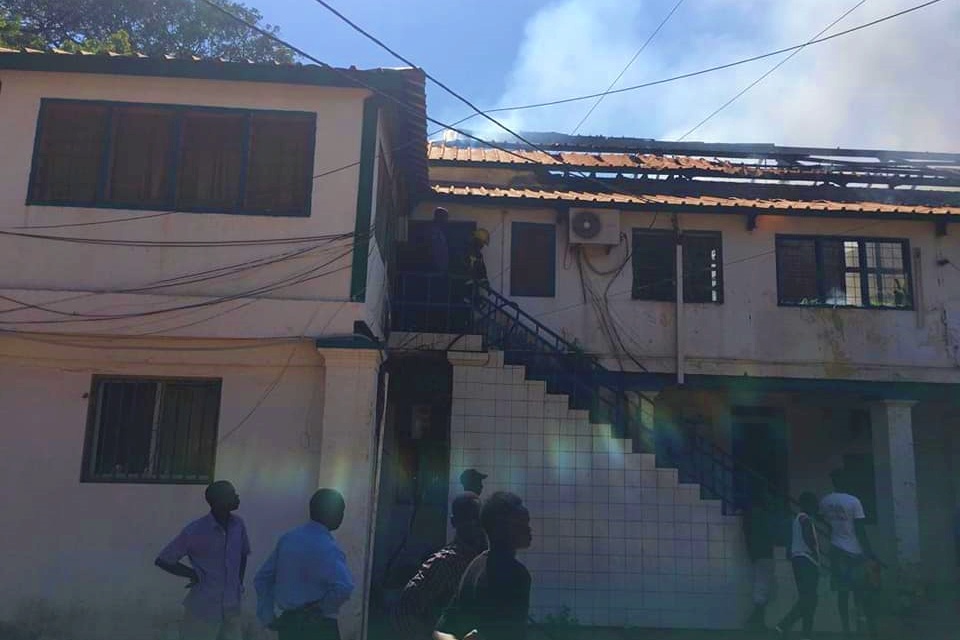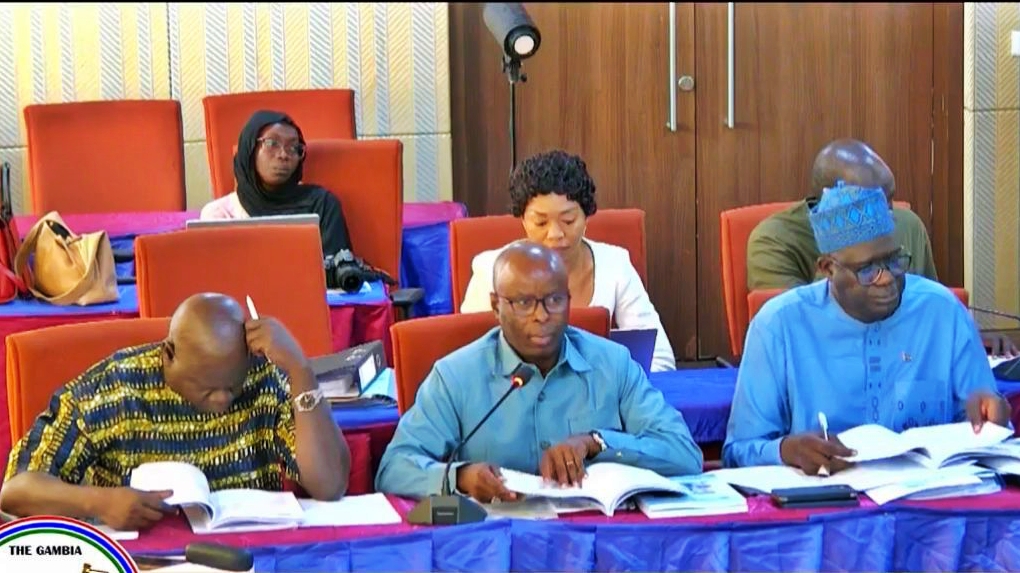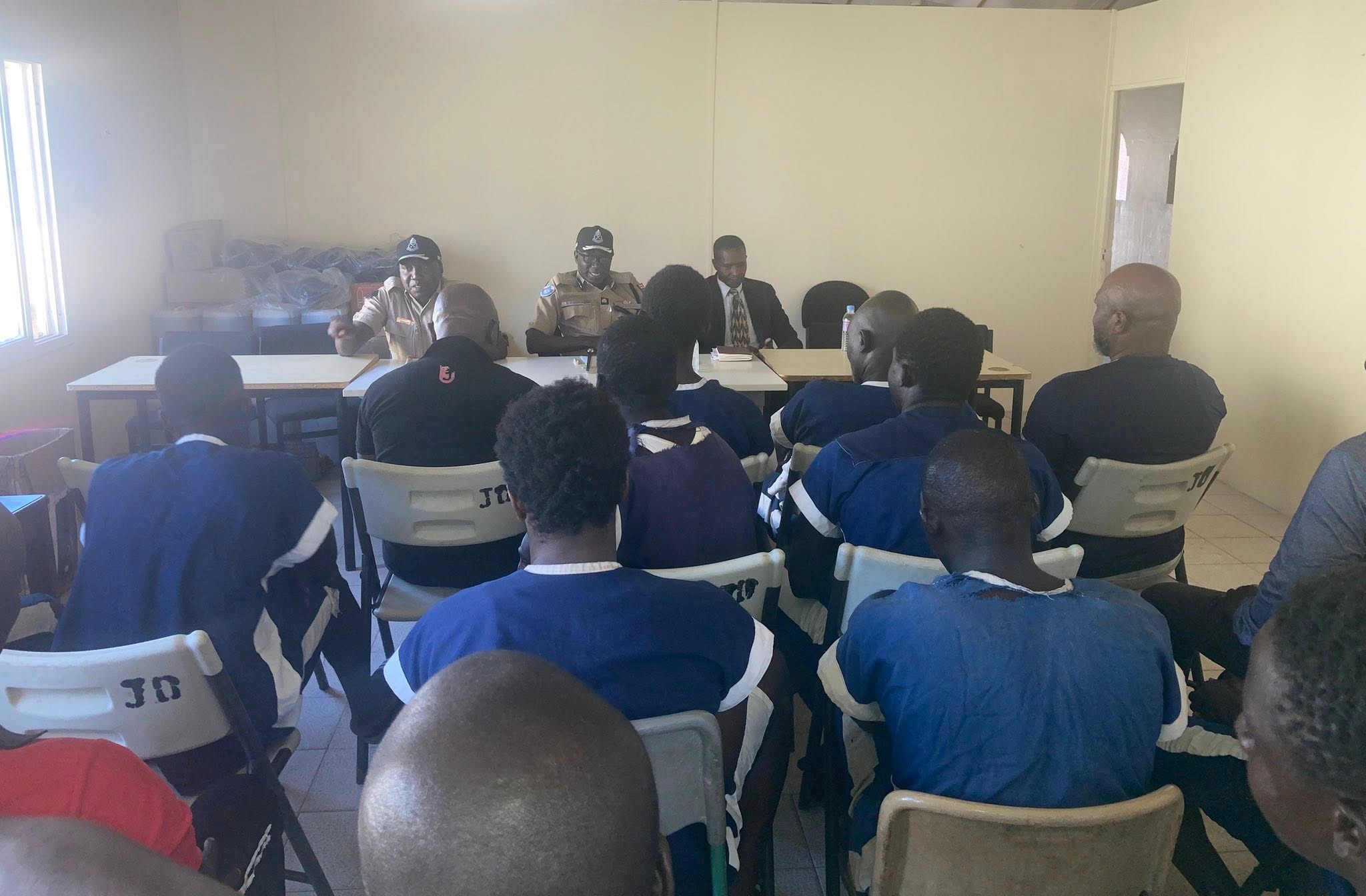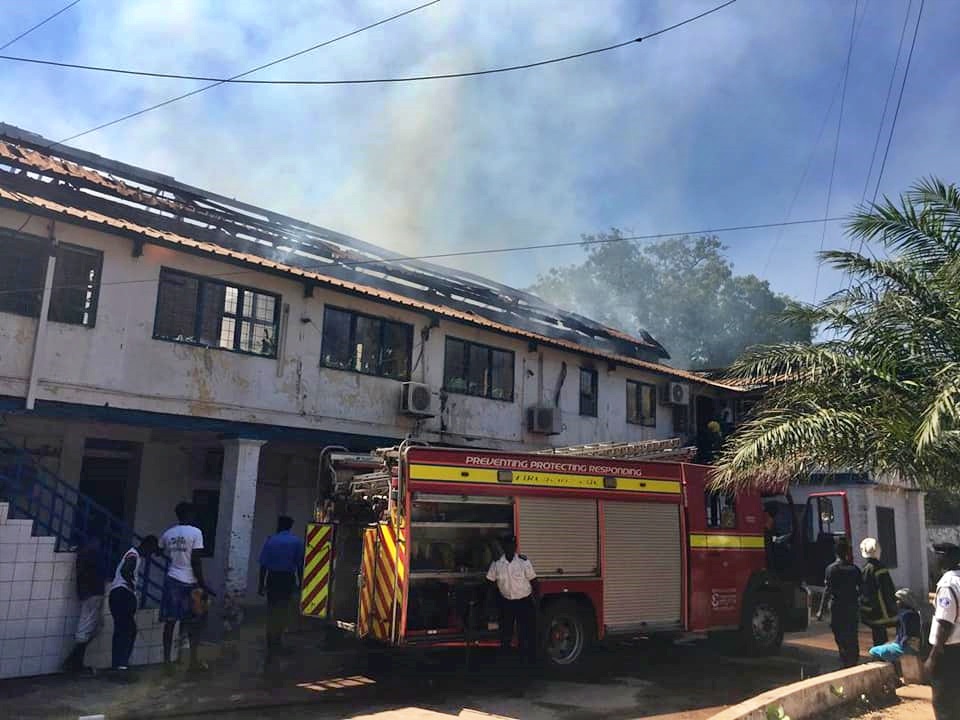Gambiaj.com – (BANJUL, The Gambia) – More questions than answers have been raised by the fire that started in the Fisheries and Water Resources Minister’s restroom on December 2, 2019. Shortly after accusations of bribery shook the Ministry of Fisheries and harsh criticism surfaced regarding The Gambia’s 2018 fishing deal with the European Union, the fire event happened.
We can now report that the official investigation into the incident has turned up contradictions, red flags, and concerning gaps that cast doubt on its conclusion that the fire was caused by an electrical short circuit. This is made possible by the Edward Francis Center for Rights and Justice, which was able to obtain the official “Fire Incident Report” from The Gambia Police Force.
The fire destroyed crucial government documents, including sensitive fisheries agreements and confidential personnel records, sparking suspicions that the incident may have been more than just an accident.
The Unlikely Origin of the Fire
The fire’s reported point of origin is itself a cause for skepticism. It allegedly began in the toilet of Minister James F.P. Gomez, an unusual location for an electrical fire, given that most wiring does not typically run through bathrooms.
Even more perplexing is that this toilet was also being used as a storage area for confidential government files—an unconventional and highly questionable practice. According to the eight member panel investigation report, the fire spread from a storage area adjacent to the toilet, which was labeled as containing “obsolete” records.
However, despite being labeled “obsolete records,” many of the burned documents, including critical fisheries agreements, were still in active use when the fire incident occurred. This immediately raises the question: why were sensitive government files stored in a restroom instead of a secured archive?
The investigation report also claims that rats had tampered with the air-conditioning pipes running through the toilet, which could have contributed to the electrical fault. Yet, if rat-induced damage was the true cause, why had previous incidents of similar damage not resulted in fires of this magnitude?
Adding to the mystery, the fire broke out while the minister and his Deputy Permanent Secretary (DPS) Omar SM Gibba were in a meeting in the same office.
The flames spread so quickly that they were forced to flee, unable to rescue any documents or equipment.
Strangely, despite multiple people being present in the office at the time, there were no prior signs of electrical malfunction before the fire ignited.
Red Flags: Missing or Destroyed High-Value Files
Among the 216 files destroyed were key documents such as the Sustainable Fisheries Partnership Agreement (SFPA) Licenses File, which had been signed between The Gambia and the European Union in October 2018, allowing EU vessels to fish in Gambian waters.
The loss of this file is particularly concerning given the controversy surrounding the agreement and allegations of corruption at the ministry, as well as the exploitation of Gambian marine resources by Chinese fishmeal companies.
Other destroyed documents included cabinet papers on fisheries and water resource management, memoranda of understanding with foreign entities, lists of fishing companies with government contracts, and financial records such as ferry coupons and salary payment logs.
The Ministry’s Deputy Permanent Secretary for Admin and Finance, who was abroad at the time of the fire, later discovered that some of his personal files and an iPad had been stolen in the aftermath.
The sheer volume and loss of such specific, high-value files raise serious concerns about whether the fire was truly an accident or if it served as a cover-up to eliminate key records.

Contradictions in the Investigation
The investigation into the fire has been riddled with contradictions.
Minister James F.P. Gomez and DPS Omar S.M. Gibba were in a meeting when they noticed smoke from the restroom. They reportedly prioritized evacuating the minister while issuing a general alert for all staff to flee the building.
However, their accounts are inconsistent. Minister James F.P. Gomez initially stated that he saw flames through his office window, but another version of events suggests that the fire was only discovered after someone opened the toilet door.
The Fire and Rescue Services concluded that the cause was an “electrical short circuit,” yet a separate assessment by NAWEC found that the building’s electricity meters remained intact.
This contradiction has not been adequately addressed. Furthermore, a previous electrical incident in 2018, which caused an explosion in a UPS device, did not trigger a fire, further deepening suspicions about how this particular incident escalated into a full-scale inferno.
If such incidents had already occurred, why had no corrective measures been implemented to prevent future risks?
Witness statements confirm that electrical short circuits were frequent in the ministry, yet none had ever resulted in a fire of such scale. NAWEC also noted that the building lacked proper electrical distribution boxes, which could have prevented a short circuit from escalating. Despite these findings, the investigation panel seemed determined to rule out the possibility of foul play.
Delayed Fire Response and Lack of Preparedness
The response from emergency services was also concerning. The Gambia Fire and Rescue Services reportedly arrived at 11:45 AM, a full 45 minutes after the fire was first discovered. By then, critical sections of the ministry had already been reduced to ashes.
The investigation report makes recommendations for improving fire safety in government buildings, such as installing smoke detectors and fire alarms—strongly implying that none were in place at the time of the incident.
If the ministry was aware of previous electrical hazards and the presence of rats damaging infrastructure, why wasn’t an emergency fire plan implemented beforehand?
Legal and Investigative Shortcomings
The legal and investigative shortcomings of the inquiry further weaken its credibility. The investigation concluded that there was no evidence of criminal activity and no suspect linked to the fire.
However, this conclusion appears premature, given the lack of forensic evidence beyond the assumption of an electrical short circuit.
The report relies heavily on witness statements rather than a thorough technical analysis, such as testing for the presence of accelerants or signs of deliberate tampering.
Additionally, NAWEC could not conclusively determine the fire’s cause, yet no officials have been held accountable for the substandard safety measures that left the Ministry vulnerable to such an incident.
Financial and Security Loopholes
Financial and security concerns add yet another layer of suspicion. An estimated GMD 31,200 ($500) in cash, which had been designated for staff salaries, was reportedly destroyed in the fire. Meanwhile, a senior official’s personal belongings, including an iPad and a data stick containing official records, mysteriously went missing.
The report mentions that office drawers were “tampered with” during cleanup efforts, hinting at possible theft amidst the chaos.
The Big Question: Was This a Cover-Up?
The timing of the fire raises further alarms. It occurred just two days before a high-profile fisheries meeting with the European Union in Banjul. The destruction of the SFPA license files, which were central to the negotiations, conveniently erased key records right before this important engagement.
The swift conclusion by the investigative panel that no criminal liability could be established—despite conflicting expert reports and the destruction of highly sensitive documents—suggests a reluctance to dig deeper.
Several pressing questions remain unanswered. Why were critical government files stored in a toilet? Why did the fire start in a location with minimal electrical wiring? How did it spread so rapidly, destroying crucial files while sparing less sensitive areas?
Why was there no immediate effort to recover key documents if they were truly confidential? Why were security protocols so lax that vital government records were stored in a location prone to rat infestations and electrical hazards? If previous electrical incidents had already occurred, why was no preventive maintenance conducted?
Why did NAWEC’s findings contradict the fire department’s conclusion, and why was this discrepancy not investigated further? Was this fire truly an accident, or was it a deliberate act to erase sensitive government records?
The fire at the Ministry of Fisheries and Water Resources may have been officially written off as an unfortunate accident, but the troubling details surrounding its origins, the files lost, and the lack of accountability suggest otherwise.
Until a more rigorous and independent investigation is conducted, the incident remains shrouded in suspicion. The possibility that it was not merely an accident but a carefully orchestrated event to cover up something far more consequential cannot be ignored.
Credit to the Edward Francis Small Center for Rights and Justice for obtaining the investigation report through the Access to Information Act.










